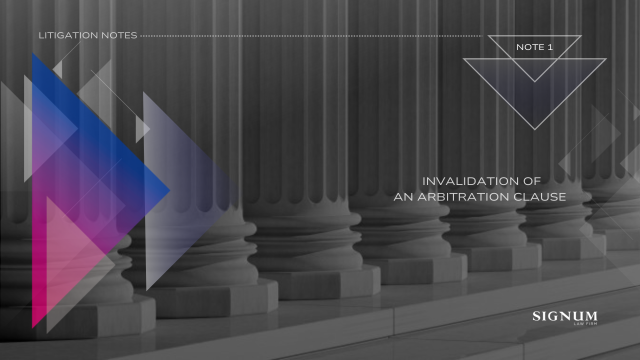Invalidation of an arbitration clause
August 10, 2023
Sometimes there are cases involving incorrectly worded arbitration clauses in a contract. Although standard wording of arbitration clauses are available in open sources, some contracting parties because of their ignorance or inexperience continue to include extremely careless arbitration clauses in the contracts.
For example, a Dutch company entered into a supply contract with a Kazakh company. In accordance with the contract, all disputes are to be settled by the International Commercial Arbitration Court of the Republic of Kazakhstan. The Kazakh company failed to pay for the goods supplied, and the Dutch company tried to collect the debt as per the contract’s provisions.
Of course, there was no recourse to the arbitration specified in the contract because there was no such arbitration. An unsuccessful attempt was made to amend the arbitration clause by offering it to the debtor. The appeal to the Atameken Arbitration also failed as the Netherlands is not a member of the European Convention on International Commercial Arbitration, making the Arbitration Centre unable to handle the dispute.
Despite our advice to challenge the arbitration clause first, the client chose to pursue legal action to collect the debt. As anticipated, the lawsuit was ultimately dismissed.
Challenging the arbitration clause was still the most promising option. The main focus was on the lack of continuous arbitration mechanism outlined in the arbitration clause, leading to the inability to protect the client's violated rights.
Demonstrating the absence of something is typically more challenging than proving its presence. However, we managed to convince the court that the arbitration specified in the arbitration clause did not exist. As a result, the court declared the arbitration clause invalid due to its non-compliance with requirements of the law.
Challenging the arbitration clause took more than 9 months, and now the client can finally proceed to court to consider the merits of the dispute. This proves once again that the wording of the dispute resolution clause in the contract should be taken very seriously.


